declaration of independence

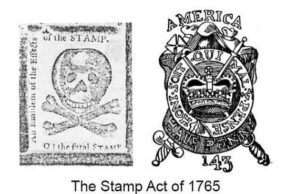 When this country was young, in fact, shortly before the Declaration of Independence was signed, and during a March 19, 1775, speech before the second Virginia Convention, Patrick Henry (39 years old) responded to the increasingly oppressive British rule over the American colonies by declaring, “I know not what course others may take, but as for me, give me liberty or give me death!” The speech so impressed so many people that following the signing of the American Declaration of Independence on July 4, 1776, Patrick Henry was appointed governor of Virginia by the Continental Congress. He couldn’t have fully known with the future might bring, but I think he might have had an inkling of what an oppressive government could potentially do to a nation. His words were a warning, not only to his generation, but to generations to come.
When this country was young, in fact, shortly before the Declaration of Independence was signed, and during a March 19, 1775, speech before the second Virginia Convention, Patrick Henry (39 years old) responded to the increasingly oppressive British rule over the American colonies by declaring, “I know not what course others may take, but as for me, give me liberty or give me death!” The speech so impressed so many people that following the signing of the American Declaration of Independence on July 4, 1776, Patrick Henry was appointed governor of Virginia by the Continental Congress. He couldn’t have fully known with the future might bring, but I think he might have had an inkling of what an oppressive government could potentially do to a nation. His words were a warning, not only to his generation, but to generations to come.
This young nation had been overtaxed, underrepresented, and in some ways enslaved, and they were done with it. The first major American opposition to British policy came in 1765 when Parliament passed the Stamp Act, which was a taxation measure to raise money for a standing British army in America. Basically, the Americans were being forced to pay for an army that was to keep them in line. That brought about the protest of “no taxation without representation,” and colonists convened the Stamp Act Congress in October 1765 to vocalize their opposition to the tax. With the enactment of the Stamp Act Congress on November 1, 1765, most colonists called for a boycott of British goods and organized attacks on the customhouses and homes of tax collectors. After months of protest, Parliament repealed the Stamp Act in March 1766. Their plan had worked.
Even with the taxation of the Stamp Act, most colonists quietly accepted British rule, thinking that it was best not to cause trouble, but when Parliament enacted the Tea Act in 1773, which granted the East India Company a monopoly on the American tea trade, the American people had had enough. The Tea Act was viewed as another way to gouge the people with unfair taxation, militant Patriots in Massachusetts organized a protest that became known as the “Boston Tea Party,” at which, protesters dumped British tea valued at approximately 10,000 pounds into Boston Harbor. Of course, the “Boston Tea Party” and other blatant destruction of British property absolutely enraged Parliament. They enacted the Coercive Acts, also known as the Intolerable Acts, in the following year. The Coercive Acts closed Boston to merchant shipping, established formal British military rule in Massachusetts, made British officials immune to criminal prosecution in America, and required colonists to quarter British troops. The oppressive, tyrannical rule just continued to grow worse. The British thought that if they could keep the colonists “under their thumb,” as it were, they could basically make slave workers out of them, and gouge them for the monies to keep Britain running smoothly. The colonists had other ideas, and so they called the first Continental Congress to consider a united American resistance to the British…finally!!
Massachusetts would lead the way of resistance against the British, with the other colonies watching intently. They formed a shadow revolutionary government and established militia groups to resist the increasing British military presence across the colony. Thomas Gage, the British governor of Massachusetts, ordered British 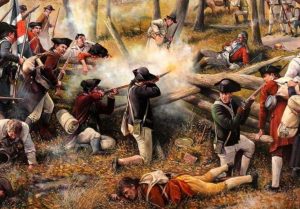
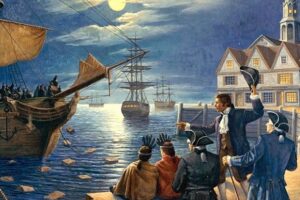 troops to march to Concord, Massachusetts in April 1775, where a Patriot arsenal was known to be located. On April 19, 1775, the British regulars encountered a group of American militiamen at Lexington, and the American Revolutionary War began. The fact was that Patrick Henry saw something that others did not see, that an out of control, oppressive government can be a terribly destructive force, if it is not held at bay.
troops to march to Concord, Massachusetts in April 1775, where a Patriot arsenal was known to be located. On April 19, 1775, the British regulars encountered a group of American militiamen at Lexington, and the American Revolutionary War began. The fact was that Patrick Henry saw something that others did not see, that an out of control, oppressive government can be a terribly destructive force, if it is not held at bay.
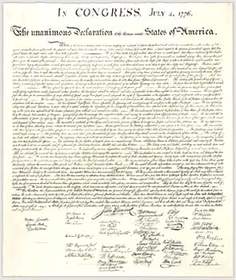
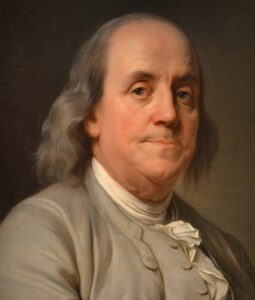 When a country is fighting for recognition, one of the most important events is when other countries recognize your country as being an independent nation. It’s rather hard to conduct business with other nations, if you are viewed as a rouge or non-existent nation. That was the position the United States found themselves in right after the Declaration of Independence was adopted. Just because a country adopts its declaration of independence, doesn’t mean that it’s a done deal. That document can and has been the cause of major wars. The United States was no exception on the war end of that either. They fought long and hard to win that declared independence from Great Britain.
When a country is fighting for recognition, one of the most important events is when other countries recognize your country as being an independent nation. It’s rather hard to conduct business with other nations, if you are viewed as a rouge or non-existent nation. That was the position the United States found themselves in right after the Declaration of Independence was adopted. Just because a country adopts its declaration of independence, doesn’t mean that it’s a done deal. That document can and has been the cause of major wars. The United States was no exception on the war end of that either. They fought long and hard to win that declared independence from Great Britain.
Finally, the coveted recognition came when on December 17, 1777, the French foreign minister, Charles Gravier, count of Vergennes, officially acknowledged the United States as an independent nation. It came after news of the Continental Army’s overwhelming victory against the British General John Burgoyne at Saratoga. The victory gave Benjamin Franklin new leverage in his efforts to rally French support for the American rebels. Although the victory occurred in October, news did not reach France until December 4th. Remember that this mail system was worse than “snail mail” ever was. Messages had to be sent by ship across the ocean.
Benjamin Franklin had quickly mustered French support upon his arrival in December 1776. France’s humiliating loss of North America to the British in the Seven Years’ War made the French eager to see an American victory. Still, the French king worried about the consequences of backing “the rebels” openly. You can’t really blame him because an act like that could bring war to his own country. Still, he did back them in every other way. In May 1776, Louis XVI sent unofficial aid to the Continental forces and the playwright Pierre-Augustin Caron de Beaumarchais helped Franklin organize private assistance for the American cause.
Benjamin Franklin, who often wore a fur cap, captured the imagination of Parisians as an American man of nature and his well-known social charms stirred French passions for all things American. His personality made him the toast of Parisian society. He was very knowledgeable, and he had a way of enchanting groups of people 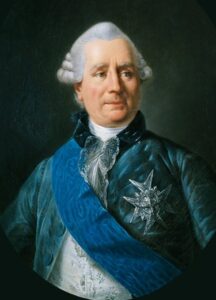
 with his wide-ranging knowledge, social graces, and witty conversation. Nevertheless, he was not allowed to appear at court, so any legal assistance he might have offered in the defense of the United States, was never heard.
with his wide-ranging knowledge, social graces, and witty conversation. Nevertheless, he was not allowed to appear at court, so any legal assistance he might have offered in the defense of the United States, was never heard.
Finally, with the impressive and long-awaited rebel victory at Saratoga, Louis XVI was convinced that the American rebels had some hope of defeating the British empire. His enthusiasm for the victory paired with French Foreign Minister Gravier’s concern that the loss of Philadelphia to the British would lead Congress to surrender, gave Franklin two influential allies with two powerful, albeit opposing reasons for officially backing the American cause, and so it was that a formal treaty of alliance with the United States followed on February 6, 1778.

 Most of us think of everything changing instantly when the Declaration of Independence was signed, and officially it did, but there was more to it than that. After years of oppression under the rulership of the British, the citizens of the 13 colonies had had enough. They formed the Continental Congress. The term “Continental Congress” most specifically refers to the First and Second Congresses of 1774–1781 and, at the time, was also used to refer to the Congress of the Confederation of 1781–1789, which operated as the first national government of the United States until being replaced under the Constitution of the United States. The 56 delegates to the Second Continental Congress represented the 13 colonies, 12 of which voted to approve the Declaration of Independence on July 4, 1776…our accepted day of Independence. The signing of the United States Declaration of Independence actually occurred on August 2, 1776, at the Pennsylvania State House in Philadelphia, which later to become known as Independence Hall. I suppose that a purist might insist that August 2nd should be our Independence Day, but the 56 delegates to the Second Continental Congress felt like once it was agreed upon, it was done. The signing was merely a technicality.
Most of us think of everything changing instantly when the Declaration of Independence was signed, and officially it did, but there was more to it than that. After years of oppression under the rulership of the British, the citizens of the 13 colonies had had enough. They formed the Continental Congress. The term “Continental Congress” most specifically refers to the First and Second Congresses of 1774–1781 and, at the time, was also used to refer to the Congress of the Confederation of 1781–1789, which operated as the first national government of the United States until being replaced under the Constitution of the United States. The 56 delegates to the Second Continental Congress represented the 13 colonies, 12 of which voted to approve the Declaration of Independence on July 4, 1776…our accepted day of Independence. The signing of the United States Declaration of Independence actually occurred on August 2, 1776, at the Pennsylvania State House in Philadelphia, which later to become known as Independence Hall. I suppose that a purist might insist that August 2nd should be our Independence Day, but the 56 delegates to the Second Continental Congress felt like once it was agreed upon, it was done. The signing was merely a technicality.
For the British government, neither of those days was acceptable, nor was the day they found out about the plan of the 13 colonies to gain their independence. In fact, that day…August 10, 1776, was the least acceptable day of all, because the British had no intention of giving the Colonies their independence…not without a fight anyway. When the news reached London, the British saw the conflict, centered in Massachusetts, as a local uprising within the British empire. Some Americans saw it that way too, but the reality is that the Declaration of Independence transformed the 13 British colonies into American states. King George III saw it as a colonial rebellion, but the Americans saw it as a struggle for their rights as British citizens. However, when Parliament continued to oppose any reform and remained unwilling to negotiate with the American rebels and instead hired Hessians, German mercenaries, to help the British army crush the rebellion, the Continental Congress began to pass measures abolishing British authority in the colonies. It was a brave move that would cost many of the 56 signers more than they could ever have imagined.
Following the signing of the Declaration of Independence, five of the signers were captured by the British and labeled as traitors. They were tortured before they died. Twelve of them had their homes ransacked and burned. Two lost their sons, who served in the Revolutionary War. Another two had sons captured, and nine of the 56 fought and died from wounds or hardships of the Revolutionary War. These men knew the risks they were taking. They knew that signing the Declaration of Independence very likely would cost them their lives. Nevertheless, they also knew that they couldn’t let the tyranny continue any longer. They had come to America to escape the tyrannical British government, and they could not allow the British government to make them slaves again. They signed, knowing they would likely die, but they saw no other way. These men weren’t soldiers…so, who were they. Twenty-four were lawyers and jurists. Eleven were merchants. Nine were farmers and plantation owners. All of them were men of means and well-educated, but they signed the Declaration of 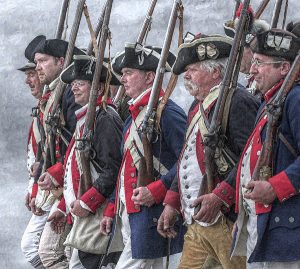
 Independence, knowing that the penalty would be death if they were captured. These men had their livelihood threatened and destroyed, their homes confiscated and sold, and some were threatened so badly that they had to constantly move their families from place to place. Still, not one of them saw this as one option of many. When it came to taking their country back, they saw it as the only option.
Independence, knowing that the penalty would be death if they were captured. These men had their livelihood threatened and destroyed, their homes confiscated and sold, and some were threatened so badly that they had to constantly move their families from place to place. Still, not one of them saw this as one option of many. When it came to taking their country back, they saw it as the only option.
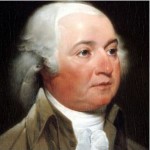
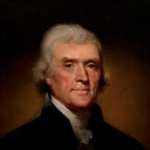 Historians, who have studied the lives of Presidents John Adams and Thomas Jefferson, agree that while the two men were friends, they also had a long history as “frenemies.” It is fairly common with politicians, because each one has definite ideas about how things should be run. So, the two rivals always had a volatile relationship.
Historians, who have studied the lives of Presidents John Adams and Thomas Jefferson, agree that while the two men were friends, they also had a long history as “frenemies.” It is fairly common with politicians, because each one has definite ideas about how things should be run. So, the two rivals always had a volatile relationship.
Their friendship began in the early days of the nation, despite their vastly different political views. Adams was a strong believer in a strong central government, and Jefferson championed states’ rights. I would imagine that there was a measure of frustration for Adams, as he watched his administration being dismantled in the early years of the Jefferson administration. Nevertheless, as a Conservative, I have to agree with the Thomas Jefferson way of government.
Adams preceded Jefferson as president friend 1797 to 1800. During the Adams presidency, it became very apparent that the two men were very different, and their political views were just as different. The hot-tempered Adams was a firm believer in a strong centralized government, while the genteel Jefferson believed federal government should take a more hands-off approach and defer to individual states’ rights. They clashed loudly and often. As Adams’ vice president, Jefferson was horrified by what he considered to be Adams’ abuse  of the presidential power…particularly his passage of the restrictive Alien and Sedition Acts of 1798. Jefferson abandoned Adams and Washington for his estate at Monticello. There, he plotted how to bring his Republican faction back into power in the presidential election of 1800. After an exceptionally bitter campaign, in which both parties engaged in slanderous attacks on each other in print, Jefferson emerged victorious. It appeared the former friends would be eternal enemies. The former revolutionaries went on to resume their friendship over 14 years of correspondence during their golden years.
of the presidential power…particularly his passage of the restrictive Alien and Sedition Acts of 1798. Jefferson abandoned Adams and Washington for his estate at Monticello. There, he plotted how to bring his Republican faction back into power in the presidential election of 1800. After an exceptionally bitter campaign, in which both parties engaged in slanderous attacks on each other in print, Jefferson emerged victorious. It appeared the former friends would be eternal enemies. The former revolutionaries went on to resume their friendship over 14 years of correspondence during their golden years.
On July 4, 1826, the 50th anniversary of the adoption of The Declaration of Independence, these “frenemies” died on the same day and within five hours of each other. Jefferson and Adams were the last surviving members of the original American revolutionaries who had stood up to the British empire and forged a new political system in the former colonies. When Adams died at the age of 90, his last words, as the country celebrated Independence Day were, “Thomas Jefferson still survives.” Adams was wrong. Jefferson had died five hours earlier at Monticello at the age of 83.
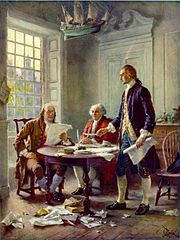 When the British Colonies, also known as the Thirteen Colonies or the early United States, were founded in the 1600s, the colonies were left to govern themselves for the most part. The land was really an expansion of power for Britain. Nevertheless, there were wars that took place in the new land and with them the costs of war, and because the colonies were owned by the British government, the cost of war fell on them. The cost of victory in the 1754 to 1763 French and Indian War and the 1756 to 1763 Seven Years’ War left the British government deeply in debt. The wars were fought in the colonies, but were equipped and populated with the British forces stationed there, at the cost of millions of British funds. The British government decided to impose The Stamp Act and Townshend Acts to pay for the wars, which provoked colonial opposition and unrest, leading to the 1770 Boston Massacre and 1773 Boston Tea Party. Then, came the Intolerable Acts, meant to punish the Massachusetts colonists for their defiance in the Tea Party protest in reaction to changes in taxation by the British Government, in spring 1774 upon Massachusetts. It was enough. These acts took away self-governance and rights that Massachusetts had enjoyed since its founding, and triggered outrage and indignation in the Thirteen Colonies, and twelve colonies sent delegates to the First Continental Congress, from September 5, 1774 to October 26, 1774. Their goal was to draft a petition to the King and organize a boycott of British goods. It was these acts…the acts that took away self-governance and other rights that triggered outrage and indignation in the Thirteen Colonies. We have often heard it called “taxation without representation” and it would never be tolerated. This nation had tasted freedom, and would never go back. These acts were key developments in the outbreak of the American Revolutionary War in April 1775.
When the British Colonies, also known as the Thirteen Colonies or the early United States, were founded in the 1600s, the colonies were left to govern themselves for the most part. The land was really an expansion of power for Britain. Nevertheless, there were wars that took place in the new land and with them the costs of war, and because the colonies were owned by the British government, the cost of war fell on them. The cost of victory in the 1754 to 1763 French and Indian War and the 1756 to 1763 Seven Years’ War left the British government deeply in debt. The wars were fought in the colonies, but were equipped and populated with the British forces stationed there, at the cost of millions of British funds. The British government decided to impose The Stamp Act and Townshend Acts to pay for the wars, which provoked colonial opposition and unrest, leading to the 1770 Boston Massacre and 1773 Boston Tea Party. Then, came the Intolerable Acts, meant to punish the Massachusetts colonists for their defiance in the Tea Party protest in reaction to changes in taxation by the British Government, in spring 1774 upon Massachusetts. It was enough. These acts took away self-governance and rights that Massachusetts had enjoyed since its founding, and triggered outrage and indignation in the Thirteen Colonies, and twelve colonies sent delegates to the First Continental Congress, from September 5, 1774 to October 26, 1774. Their goal was to draft a petition to the King and organize a boycott of British goods. It was these acts…the acts that took away self-governance and other rights that triggered outrage and indignation in the Thirteen Colonies. We have often heard it called “taxation without representation” and it would never be tolerated. This nation had tasted freedom, and would never go back. These acts were key developments in the outbreak of the American Revolutionary War in April 1775.
The Revolutionary War was not going to be a short war. It would rage from April 19, 1775 to September 3, 1783…eight long years. For seven years after the United States Declaration of Independence was adopted by the Second Continental Congress at its meeting in Philadelphia, Pennsylvania, on July 4, 1776, the war still raged on. I don’t suppose any nation would want to simply lay down its control, but the reality is that Britain had lost its control many years before, and it was time to cut their losses and go home.
It was on June 11, 1776, that the Continental Congress made the decision and selected Thomas Jefferson of Virginia, John Adams of Massachusetts, Benjamin Franklin of Pennsylvania, Roger Sherman of Connecticut and Robert R. Livingston of New York to draft our Declaration of Independence. That moment truly sealed the fate of the Britain ownership of this nation. The words they penned would be taught in schools, put on documents, t-shirts, decals, and many other forms of media. Because John Adams knew of Thomas Jefferson’s prowess with a pen, he urged him to author the first draft of the document, which was then carefully revised by Adams and Franklin before being given to Congress for review on June 28. I don’t know how many have ever read the entire Declaration of Independence, but I have chosen to place it in its unedited entirety, because I think we need to know why our founding fathers fought so hard for our independence. The 4th of July is not about picnics and fireworks, it is about freedom, and we must never forget that…nor the five men who wrote it and the entire congress who signed it.
The Declaration of Independence
“When in the Course of human events, it becomes necessary for one people to dissolve the political bands which have connected them with another, and to assume among the powers of the earth, the separate and equal station to which the Laws of Nature and of Nature’s God entitle them, a decent respect to the opinions of mankind requires that they should declare the causes which impel them to the separation.
We hold these truths to be self-evident, that all men are created equal, that they are endowed by their Creator with certain unalienable Rights, that among these are Life, Liberty and the pursuit of Happiness.–That to secure these rights, Governments are instituted among Men, deriving their just powers from the consent of the governed, –That whenever any Form of Government becomes destructive of these ends, it is the Right of the People to alter or to abolish it, and to institute new Government, laying its foundation on such principles and organizing its powers in such form, as to them shall seem most likely to effect their Safety and Happiness. Prudence, indeed, will dictate that Governments long established should not be changed for light and transient causes; and accordingly all experience hath shewn, that mankind are more disposed to suffer, while evils are sufferable, than to right themselves by abolishing the forms to which they are accustomed. But when a long train of abuses and usurpations, pursuing invariably the same Object evinces a design to reduce them under absolute Despotism, it is their right, it is their duty, to throw off such Government, and to provide new Guards for their future security.–Such has been the patient sufferance of these Colonies; and such is now the necessity which constrains them to alter their former Systems of Government. The history of the present King of Great Britain is a history of repeated injuries and usurpations, all having in direct object the establishment of an absolute Tyranny over these States. To prove this, let Facts be submitted to a candid world.
He has refused his Assent to Laws, the most wholesome and necessary for the public good.
He has forbidden his Governors to pass Laws of immediate and pressing importance, unless suspended in their operation till his Assent should be obtained; and when so suspended, he has utterly neglected to attend to them.
He has refused to pass other Laws for the accommodation of large districts of people, unless those people would relinquish the right of Representation in the Legislature, a right inestimable to them and formidable to tyrants only.
He has called together legislative bodies at places unusual, uncomfortable, and distant from the depository of their public Records, for the sole purpose of fatiguing them into compliance with his measures.
He has dissolved Representative Houses repeatedly, for opposing with manly firmness his invasions on the rights of the people.
He has refused for a long time, after such dissolutions, to cause others to be elected; whereby the Legislative powers, incapable of Annihilation, have returned to the People at large for their exercise; the State remaining in the mean time exposed to all the dangers of invasion from without, and convulsions within.

He has endeavoured to prevent the population of these States; for that purpose obstructing the Laws for Naturalization of Foreigners; refusing to pass others to encourage their migrations hither, and raising the conditions of new Appropriations of Lands.
He has obstructed the Administration of Justice, by refusing his Assent to Laws for establishing Judiciary powers.
He has made Judges dependent on his Will alone, for the tenure of their offices, and the amount and payment of their salaries.
He has erected a multitude of New Offices, and sent hither swarms of Officers to harrass our people, and eat out their substance.
He has kept among us, in times of peace, Standing Armies without the Consent of our legislatures.
He has affected to render the Military independent of and superior to the Civil power.
He has combined with others to subject us to a jurisdiction foreign to our constitution, and unacknowledged by our laws; giving his Assent to their Acts of pretended Legislation:
For Quartering large bodies of armed troops among us:
For protecting them, by a mock Trial, from punishment for any Murders which they should commit on the Inhabitants of these States:
For cutting off our Trade with all parts of the world:
For imposing Taxes on us without our Consent:
For depriving us in many cases, of the benefits of Trial by Jury:
For transporting us beyond Seas to be tried for pretended offences
For abolishing the free System of English Laws in a neighbouring Province, establishing therein an Arbitrary government, and enlarging its Boundaries so as to render it at once an example and fit instrument for introducing the same absolute rule into these Colonies:
For taking away our Charters, abolishing our most valuable Laws, and altering fundamentally the Forms of our Governments:
For suspending our own Legislatures, and declaring themselves invested with power to legislate for us in all cases whatsoever.
He has abdicated Government here, by declaring us out of his Protection and waging War against us.
He has plundered our seas, ravaged our Coasts, burnt our towns, and destroyed the lives of our people.
He is at this time transporting large Armies of foreign Mercenaries to compleat the works of death, desolation and tyranny, already begun with circumstances of Cruelty & perfidy scarcely paralleled in the most barbarous ages, and totally unworthy the Head of a civilized nation.
He has constrained our fellow Citizens taken Captive on the high Seas to bear Arms against their Country, to become the executioners of their friends and Brethren, or to fall themselves by their Hands.
He has excited domestic insurrections amongst us, and has endeavoured to bring on the inhabitants of our frontiers, the merciless Indian Savages, whose known rule of warfare, is an undistinguished destruction of all ages, sexes and conditions.
In every stage of these Oppressions We have Petitioned for Redress in the most humble terms: Our repeated Petitions have been answered only by repeated injury. A Prince whose character is thus marked by every act which may define a Tyrant, is unfit to be the ruler of a free people.
Nor have We been wanting in attentions to our Brittish brethren. We have warned them from time to time of attempts by their legislature to extend an unwarrantable jurisdiction over us. We have reminded them of the circumstances of our emigration and settlement here. We have appealed to their native justice and magnanimity, and we have conjured them by the ties of our common kindred to disavow these usurpations, which, would inevitably interrupt our connections and correspondence. They too have been deaf to the voice of justice and of consanguinity. We must, therefore, acquiesce in the necessity, which denounces our Separation, and hold them, as we hold the rest of mankind, Enemies in War, in Peace Friends.
We, therefore, the Representatives of the united States of America, in General Congress, Assembled, appealing to the Supreme Judge of the world for the rectitude of our intentions, do, in the Name, and by Authority of the good People of these Colonies, solemnly publish and declare, That these United Colonies are, and of Right  ought to be Free and Independent States; that they are Absolved from all Allegiance to the British Crown, and that all political connection between them and the State of Great Britain, is and ought to be totally dissolved; and that as Free and Independent States, they have full Power to levy War, conclude Peace, contract Alliances, establish Commerce, and to do all other Acts and Things which Independent States may of right do. And for the support of this Declaration, with a firm reliance on the protection of divine Providence, we mutually pledge to each other our Lives, our Fortunes and our sacred Honor.”
ought to be Free and Independent States; that they are Absolved from all Allegiance to the British Crown, and that all political connection between them and the State of Great Britain, is and ought to be totally dissolved; and that as Free and Independent States, they have full Power to levy War, conclude Peace, contract Alliances, establish Commerce, and to do all other Acts and Things which Independent States may of right do. And for the support of this Declaration, with a firm reliance on the protection of divine Providence, we mutually pledge to each other our Lives, our Fortunes and our sacred Honor.”
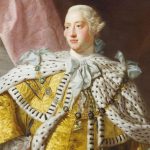 The American Revolution was a serious embarrassment to Britain, and especially to King George III. The king had to admit that things weren’t going well in the colonies…at least not where Britain was concerned. By now, the colonists had signed the Declaration of Independence that summer, and they were not going to be moved from achieving their goal to be a sovereign nation.
The American Revolution was a serious embarrassment to Britain, and especially to King George III. The king had to admit that things weren’t going well in the colonies…at least not where Britain was concerned. By now, the colonists had signed the Declaration of Independence that summer, and they were not going to be moved from achieving their goal to be a sovereign nation.
On this day, October 31, 1776, the king give a speech to the British Parliament, telling them about the signing of the United States Declaration of Independence and the revolutionary leaders who signed it, saying, “for daring and desperate is the spirit of those leaders, whose object has always been dominion and power, that they have now openly renounced all allegiance to the crown, and all political connection with this country.” I’m sure he felt that the colonists were rebels, who were not worth wasting time on by now, and he  hoped he could walk away from them without losing face any more than he already had. The British never intended for the United States to be anything more than the colones. The king went on to inform Parliament of the successful British victory over General George Washington and the Continental Army at the Battle of Long Island on August 27, 1776, but warned them that, “notwithstanding the fair prospect, it was necessary to prepare for another campaign.” Somehow, the king had the idea that there was still hope to keep the colonies.
hoped he could walk away from them without losing face any more than he already had. The British never intended for the United States to be anything more than the colones. The king went on to inform Parliament of the successful British victory over General George Washington and the Continental Army at the Battle of Long Island on August 27, 1776, but warned them that, “notwithstanding the fair prospect, it was necessary to prepare for another campaign.” Somehow, the king had the idea that there was still hope to keep the colonies.
Despite George III’s harsh words, General William Howe and his brother, Admiral Richard Howe, still hoped to convince the Americans to rejoin the British empire in the wake of the colonists’ humiliating defeat at the Battle of Long Island. They hoped to do  thing peacefully, but that was just not to be. The British could easily have prevented Washington’s retreat from Long Island and captured most of the Patriot officer corps, including the commander in chief. However, instead of forcing the former colonies into submission by executing Washington and his officers as traitors, the Howe brothers let them go with the hope of swaying Patriot opinion towards a return to the mother country. The Howe brothers’ attempts at negotiation failed, and the War for Independence dragged on for another four years, until the formal surrender of the British to the Americans on October 19, 1781, after the Battle of Yorktown. The freedom of the United States was not going to be taken from them…and that was a serious embarrassment to Britain.
thing peacefully, but that was just not to be. The British could easily have prevented Washington’s retreat from Long Island and captured most of the Patriot officer corps, including the commander in chief. However, instead of forcing the former colonies into submission by executing Washington and his officers as traitors, the Howe brothers let them go with the hope of swaying Patriot opinion towards a return to the mother country. The Howe brothers’ attempts at negotiation failed, and the War for Independence dragged on for another four years, until the formal surrender of the British to the Americans on October 19, 1781, after the Battle of Yorktown. The freedom of the United States was not going to be taken from them…and that was a serious embarrassment to Britain.
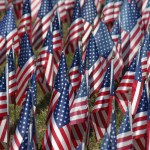 With our nation’s Independence Day upon us, I find myself, like many other Americans, in a rather weary and confused state. So much about our country has changed, that it has almost become unrecognizable to me. The United States of America has always been known as the land of the free and the home of the brave, but now it seems that we are becoming the land of the free, only if we agree with what a select few want, and as for the brave, well it’s becoming very much out of style to stand up for our beliefs, values, or even for our country. I’m not picking on any one group here, but rather I find myself feeling quite sad that the sense of pride we have always felt for our nation is suddenly gone…at least in the minds of some people. I know that everyone really has a right to live their life in the way that they want to, but the problem is that lately everyone wants to tell everyone else how to believe. With that in mind, I thought it fitting to remind people about why our ancestors came here in the first place.
With our nation’s Independence Day upon us, I find myself, like many other Americans, in a rather weary and confused state. So much about our country has changed, that it has almost become unrecognizable to me. The United States of America has always been known as the land of the free and the home of the brave, but now it seems that we are becoming the land of the free, only if we agree with what a select few want, and as for the brave, well it’s becoming very much out of style to stand up for our beliefs, values, or even for our country. I’m not picking on any one group here, but rather I find myself feeling quite sad that the sense of pride we have always felt for our nation is suddenly gone…at least in the minds of some people. I know that everyone really has a right to live their life in the way that they want to, but the problem is that lately everyone wants to tell everyone else how to believe. With that in mind, I thought it fitting to remind people about why our ancestors came here in the first place.
When our forefathers left England, it was to get away from a government that made it a treasonous act to separate from the Church of England. The people who did not agree with the teachings of the Church of England had to leave or they would be killed. That was the reason that the First Amendment to our Constitution says, “Congress shall make no law respecting an establishment of religion, or prohibiting the free exercise thereof; or abridging the freedom of speech, or of the press; or the right of the people peaceably to assemble, and to petition the government for a redress of grievances.” These were very important parts of our 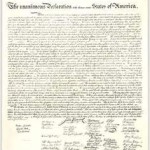 Constitution. The problem is that many people have forgotten those rights, or they have mixed up the meaning, thinking that we are not to have anything to do with religion in our government. That isn’t it at all. It says that the government is to stay out of our religious beliefs. That is not what is happening. Our current government is far too invasive in our religions.
Constitution. The problem is that many people have forgotten those rights, or they have mixed up the meaning, thinking that we are not to have anything to do with religion in our government. That isn’t it at all. It says that the government is to stay out of our religious beliefs. That is not what is happening. Our current government is far too invasive in our religions.
As time went on, England tried to usurp more and more authority over the young colonies. They tried to interfere with religion, economics, and politics. Even though we were a nation basically under them, we knew it could not continue much longer. It was decided that we needed to be independent from England. That was when we knew that we could not continue to be under this type of rule. So, why do we celebrate the 4th of July…Independence Day. We think of July 4, 1776, as a day that represents the Declaration of Independence and the birth of the United States of America as an independent nation. But it wasn’t on July 4, 1776 that the Continental Congress decided to declare independence. That was on July 2, 1776. It wasn’t the day we started the American Revolution either. That had happened back in April 1775. And it wasn’t the day Thomas Jefferson wrote the first draft of the Declaration of Independence. He did that in June 1776. It wasn’t even the date on which the Declaration was delivered to Great Britain. That didn’t happen until November 1776. It wasn’t even the date it was signed. That was August 2, 1776.
No, we celebrate the 4th of July, because that was the day that the Continental Congress approved the final 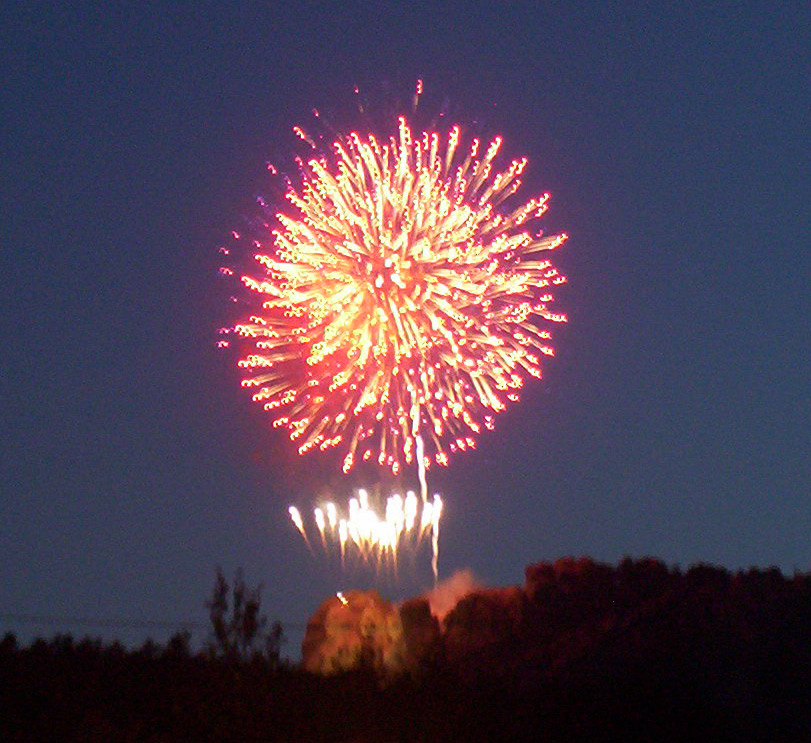 wording of the Declaration of Independence, in 1776. They’d been working on it for a couple of days after the draft was submitted on July 2nd and finally agreed on all of the edits and changes. That was the day that truly represents our Independence. Not the day it was accepted by Britain, but the day we decided to make it our own. That was the day we made freedom and independence our own. It was the day that we decided to live in peace together, with each man, woman, and child having certain rights that should never be denied them. I think some people in our country, and especially our leadership have forgotten that fact in their race to political correctness, anti-racism, and a thinly disguised attempt to control our religious rights.
wording of the Declaration of Independence, in 1776. They’d been working on it for a couple of days after the draft was submitted on July 2nd and finally agreed on all of the edits and changes. That was the day that truly represents our Independence. Not the day it was accepted by Britain, but the day we decided to make it our own. That was the day we made freedom and independence our own. It was the day that we decided to live in peace together, with each man, woman, and child having certain rights that should never be denied them. I think some people in our country, and especially our leadership have forgotten that fact in their race to political correctness, anti-racism, and a thinly disguised attempt to control our religious rights.
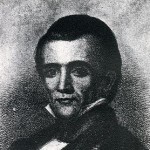
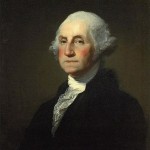 I have always known of my family’s relationship to Princess Diana, and I also knew about the Knox family’s relationship to James Knox Polk, who is Bob’s 2nd cousin 5 times removed, but in more recent years I have come across, or as one family member put it, tripped over a line of presidents on my side of the family as well as Bob’s. It seems that both of us are related George HW Bush, my 15th cousin once removed, and George W Bush, who is my 15th cousin 2 times removed. We are also related to, although in a roundabout way, Andrew Jackson, the husband of aunt of wife of 1st cousin 6x removed of my husband, Bob…I know, that one is a little bit complicated.
I have always known of my family’s relationship to Princess Diana, and I also knew about the Knox family’s relationship to James Knox Polk, who is Bob’s 2nd cousin 5 times removed, but in more recent years I have come across, or as one family member put it, tripped over a line of presidents on my side of the family as well as Bob’s. It seems that both of us are related George HW Bush, my 15th cousin once removed, and George W Bush, who is my 15th cousin 2 times removed. We are also related to, although in a roundabout way, Andrew Jackson, the husband of aunt of wife of 1st cousin 6x removed of my husband, Bob…I know, that one is a little bit complicated.
I did not know of the Spencer connection to, Calvin Coolidge, Franklin Delano Roosevelt, and George Washington. I also did not know of the Knox connection to the family history to Kentucky Frontiersman Daniel Boone, Benjamin Harrison, a signer of the Declaration of Independence; his son, William Henry Harrison, 9th President of the United States; his great-grandson, Benjamin Harrison, 23rd President of the United States and…President George Washington. At this point, I don’t know at what level we are related to these, but I am finding out that Bob’s family history and my family history are intermingled in several areas. Now that I have some of this information, I look forward to putting these people into my family history, so I can find out how we are connected and who else might be in the family.
I have also found out that on the Spencer side of the family, Henry and Isabella Lincoln Spencer, who lived in the 1400’s, had a very large influence on the United States, as well as England, through their offspring. And, I have found out that John and Jean Gracy Knox, who lived in the 1700’s, also had a large influence in American history through their offspring. It is very strange to me to look at the people in history, knowing that at the time they had children, they had no idea what impact those children and their descendants would have on the world. To be an American president or a signer of the Declaration of Independence, made these men very well known throughout history. Even a frontiersman from Kentucky who probably never gave any thought to what the future of our nation might be at the time he was doing his part to go down in history, has managed to become an endeared character in all the history books, as well as, in television shows and movies. Who would have ever thought that could happen?
It’s odd to think that, depending on what we do with our lives, any one of us could stand out in the history of the nation and the world. Little did anyone think of the future when they began whatever cause they held close to their heart, and yet, just a short time down the road, they have become a household name, written in every history book, with parks, schools, museums, and airports, named after them. I wonder if they had any inkling just how big they were going to become. It is mind boggling just to think back on it now, and I’m not them. Of course, they didn’t really know how big they would be at the time they were becoming so big. Still, 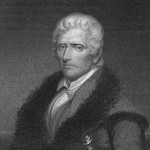
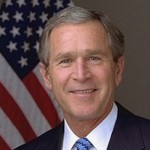 the presidents had to have known at the time they were elected that they had joined an elite group of men, and that would never change from that point on. Good or bad, right or wrong, the decisions they made from the first day of their presidency to the last, would be on record as either a testament or detriment to the man. I think that, in itself, would be a daunting thought, but in reality, they couldn’t think about that much when the decisions that affect a nation are in their hands. Just like their predecessors, they are a part of a long line of presidents, and some of them, are a part of my family.
the presidents had to have known at the time they were elected that they had joined an elite group of men, and that would never change from that point on. Good or bad, right or wrong, the decisions they made from the first day of their presidency to the last, would be on record as either a testament or detriment to the man. I think that, in itself, would be a daunting thought, but in reality, they couldn’t think about that much when the decisions that affect a nation are in their hands. Just like their predecessors, they are a part of a long line of presidents, and some of them, are a part of my family.

